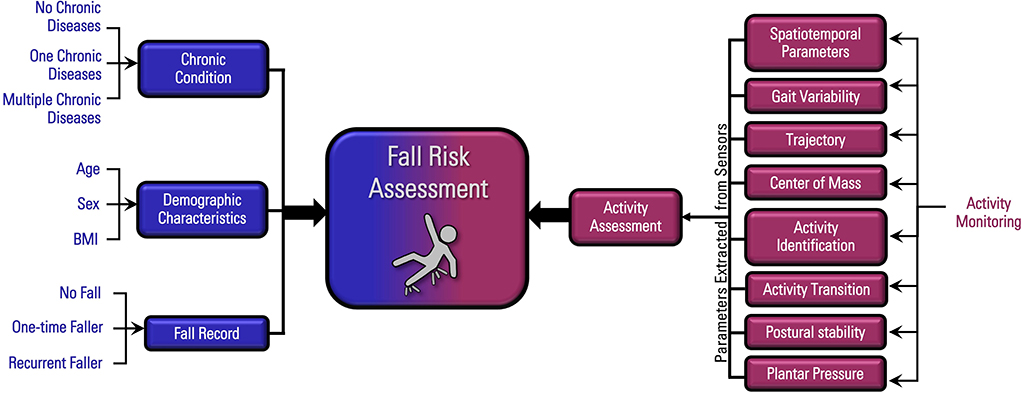Get This Report on Dementia Fall Risk
Table of ContentsDementia Fall Risk Can Be Fun For AnyoneNot known Factual Statements About Dementia Fall Risk Unknown Facts About Dementia Fall Risk4 Easy Facts About Dementia Fall Risk ExplainedSee This Report on Dementia Fall Risk
You may be anxious since you have actually had a loss prior to or since you've discovered you're starting to feel unsteady on your feet. You may have observed adjustments to your wellness, or simply seem like you're reducing down a little. Whatever the factor, it isn't uncommon to become cautious and shed self-confidence, and this can stop you doing the important things you utilized to do and make you feel more isolated.If you've had a loss or you have actually begun to really feel unsteady, tell your doctor even if you really feel fine or else. Your doctor can inspect your balance and the method you walk to see if improvements can be made. They may have the ability to refer you for a falls danger evaluation or to the falls avoidance service.
This info can be obtained with interviews with the individual, their caretakers, and a review of their medical documents. Begin by asking the private about their history of drops, including the regularity and conditions of any kind of current drops. Dementia Fall Risk. Inquire about any kind of movement troubles they may experience, such as unsteady or trouble strolling
Conduct a thorough testimonial of the person's medications, paying certain focus to those known to increase the danger of drops, such as sedatives or medicines that reduced high blood pressure. Identify if they are taking multiple drugs or if there have actually been recent changes in their drug program. Evaluate the individual's home atmosphere for possible risks that can increase the risk of drops, such as bad lighting, loose carpets, or lack of grab bars in the shower room.
3 Simple Techniques For Dementia Fall Risk
Overview the person via the loss danger evaluation type, describing each concern and recording their actions precisely. Determine the total threat rating based on the responses provided in the analysis type.
Regularly keep track of the person's progress and reassess their risk of falls as required. Supply recurring education and learning and support to promote safety and reduce the risk of drops in their daily living activities.
Many researches have revealed that physical treatment can aid to decrease the danger of falling in adults ages 65 and older. In a brand-new research (that took a look at falls danger in ladies ages 80 and older), researchers computed the economic influence of choosing physical therapy to stop drops, and they found that doing so conserves $2,144, consisting of all the covert costs of your time, pain, missed out on life events, and the dollars spent for services.
The Of Dementia Fall Risk
Evaluating your balance, strength, and strolling capability. A home security evaluation. Based on the analysis results, your physical therapist will develop a strategy that is customized to your certain needs.
Older adults who have trouble walking and chatting at the very same time go to a greater threat of dropping. Dementia Fall Risk. To help increase your security throughout daily activities, your physical specialist might make a training program that will certainly challenge you to preserve standing and visit homepage strolling while you do another job. Examples include strolling or standing while counting backward, having a conversation, or bring a bag of groceries
Set goals for raising their physical activity. Exercise extra to increase their strength and balance. These programs often are led by volunteer coaches.
Some Of Dementia Fall Risk

Measles, or rubeola, is a highly infectious, intense viral contagious condition triggered by the measles virus. Some individuals consider measles as just a rash and high temperature that gets rid of up in a couple of days; nonetheless, measles can cause severe wellness difficulties, specifically in youngsters younger than 5-years-old. The very best protection against measles is the measles, mumps, and rubella (MMR) vaccine.
Falls are a common reason of injury amongst older adults.
Not known Details About Dementia Fall Risk

She has no history of falls, her gait is stable, and she voids with no issues. The previous nurse states that she calls for help to the bathroom when she requires to go.
Examples of common fall interventions/measures consist of: Guaranteeing a client's vital items are available. other Putting the person's bed rails up with the alarm on. Aiding a client while they're rising from bed. Beyond recognizing how to make use of the Johns Hopkins Fall Danger Analysis Device, it is very important that centers incorporate its usage into a more detailed fall prevention strategy.